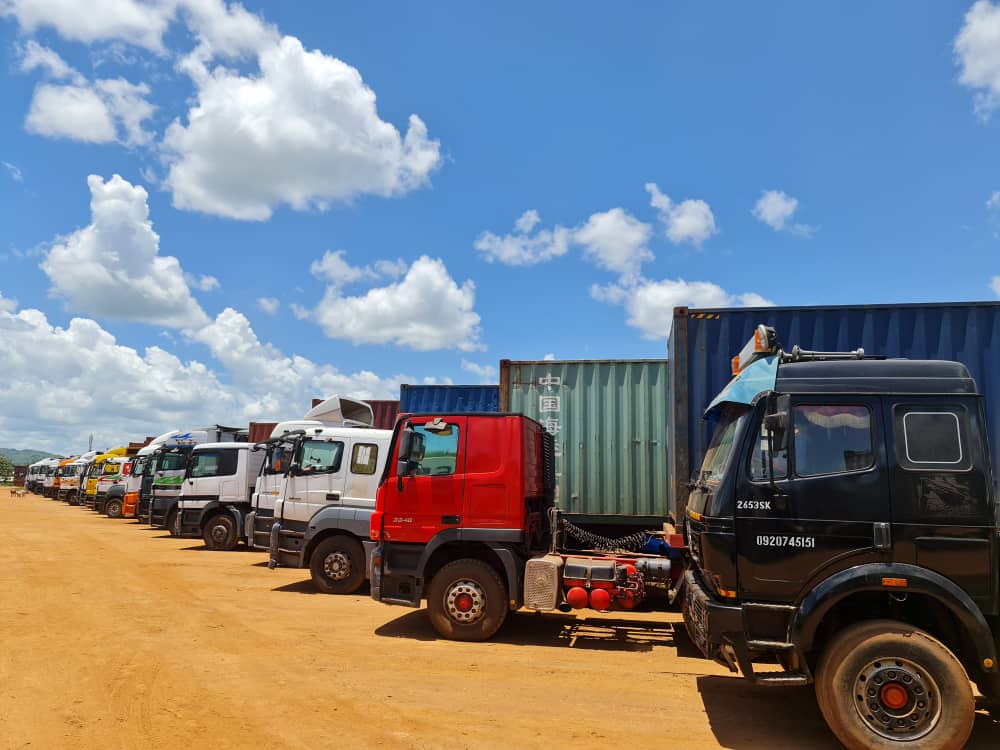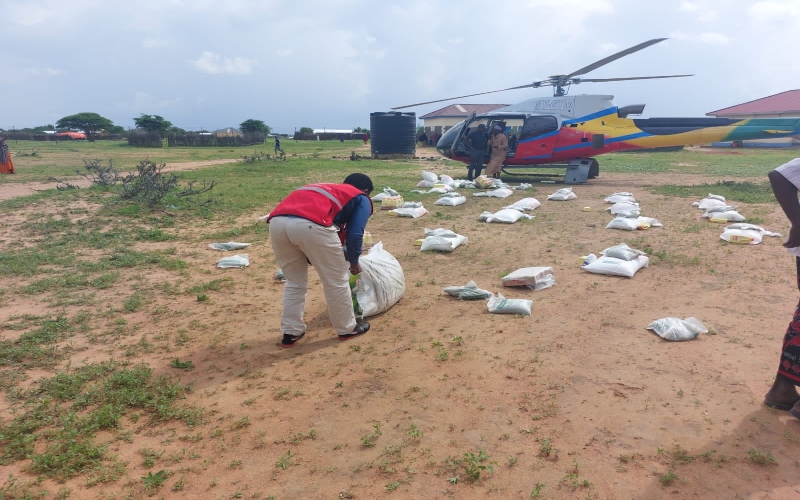Transit goods trucks stranded in Nimule, South Sudan, over new electronic tracking fees

The Acting Assistant Commissioner of Customs said the congestion at the border is a direct consequence of traders' dissatisfaction with the charges.
A standoff has emerged at the Nimule border town, where over 1,000 transit goods haulage trucks find themselves stranded due to newly instituted electronic tracking fees.
Customs officials have revealed that importers are protesting against the introduction of a USD 350 (Sh46,025) fee per truck for the Electronic Cargo Tracking Note (ECTN) system.
More To Read
- Transporters issue 7-day ultimatum over empty container backlog
- Youth, women urged to register as Mombasa gears to host first-ever logistics summit
- KRA to overhaul customs system, fully automate cargo operations by 2026
- Kenyan truckers accuse govt of failing to secure release of six detained drivers in South Sudan
- Truckers stage strike, bring operations at Mombasa Port to a standstill over illegal fees
- New law requires importers to secure local marine cargo insurance from next month
The ECTN, also known as the Waiver Certificate, is a mandatory shipping document for importing cargo to 25 African countries. It provides local customs authorities with essential information and visibility about the import shipment.
Kenyan clearing agents have contested the fee per container that all cargo bound for South Sudan imposes.
The dispute arises from a directive issued by the Mombasa Monitoring Station of the National Revenue Authority of South Sudan, requiring payment to Invesco Uganda Limited for the ECTN system.
In a petition lodged at the High Court in Mombasa, the Kenya International Freight and Warehousing Association (Kifwa) argues that they operate under Kenyan laws and are licenced by the Commissioner of Customs to clear cargo and collect taxes.
Kifwa seeks a declaration of the fee's unconstitutionality and requests an order to annul the directive, preventing its enforcement by the Mombasa Monitoring Station of the National Revenue Authority of South Sudan. They contend that the South Sudan ECTN is redundant, serving only to collect funds from a private account in Uganda.
Delays, financial burdens
The implementation of the directive has caused clearing agents to face delays and financial burdens, as goods remain at port facilities until they pay the levy. Kifwa maintains that this violates their rights to earn a living and fair administrative action.
The association calls for the protection of their economic empowerment rights as outlined in the Constitution, urging the court to intervene in the matter promptly.
The ongoing dispute underscores the complexities of cross-border trade regulations and highlights the need for transparent and equitable practices to facilitate efficient commerce between Kenya and South Sudan.
Col. Arop Kuol, the Acting Assistant Commissioner of Customs in Nimule, confirmed the situation, stating, "People who were benefiting are not happy about this issue (tracking fees), and they are the ones resisting and not complying."
 Freight trucks remain parked at Elegu border in protest of continued attacks on drivers along the Juba-Nimule road. (Photo: Independent.co.ug)
Freight trucks remain parked at Elegu border in protest of continued attacks on drivers along the Juba-Nimule road. (Photo: Independent.co.ug)
He emphasised that the congestion at the border is a direct consequence of traders' dissatisfaction with the charges, leading to the mass parking of trucks.
"It is not a tax but a fee for a tracking device because we did not increase any tax," clarified Col. Kuol.
"The fee is for the tracking device per truck, and we are currently engaging the business community through clearing agents that they need to comply."
Congestion concerns
Clearing agent Deng Daniel echoed concerns over the congestion, urging government intervention to alleviate the burden on traders.
He noted that some traders are not following the new policy, which has resulted in a decrease in the daily release rate of trucks. "There is an outcry by the public and traders, and they want the fees reduced."
In March, South Sudan announced stringent measures requiring all cargo passing through the Mombasa port to be tagged before leaving the country in a bid to curb the influx of illegal and undeclared goods.
The move aims to enhance revenue collection and tackle challenges such as underestimation, undervaluation, and diversion of cargo.
South Sudan's Minister of Finance and Planning, Dr Bak Barnaba Chol, disclosed the new tracking measures to shippers, highlighting the implementation of the ECTN system.
"The sole purpose of the ECTN is to help the government of South Sudan maximise its revenue collection by remedying the challenges of underestimation, undervaluation, diversion of cargo, and round-tripping," Dr Chol stated.
Importers and exporters will be required to pay the service charge of $350 to the agent handling the ECTN process.
South Sudan's decision to implement stricter cargo tracking measures comes in response to ongoing challenges with illegal goods entering the country.
In 2022, the National Ministry of Trade and Industry raised concerns about the illegal entry of expired and substandard goods. Last October, the National Bureau of Standards confiscated 62 trucks allegedly carrying aflatoxin-contaminated grains.
Annually, South Sudan exports over 1.5 million metric tonnes of goods through Uganda from the port of Mombasa.
Top Stories Today













































